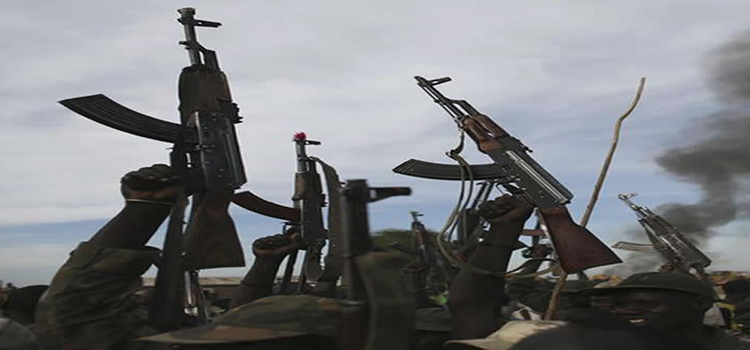Hollywood star Angelina Jolie Pitt has added her voice to the debate on reparation and justice for survivors of war and crimes against humanity.
In Kenya, survivors of post-election violence are still waiting to see if they will get reparations after the Ruto-Sang case was vacated early in the month.
Jolie Pitt says that justice for victims can only be realised if there is adequate support psychologically and economically.
“There can be no complete justice without consideration for the victims of the war crimes themselves, and the practical assistance they need to move on with their lives and overcome the harm they have suffered. That is why the work of the Trust Fund is important and must be supported and strengthened over time,” she said during a meeting with the staff of Trust Fund for Victims at The Hague.
The movie star and director also discussed with the board the importance of practical assistance to victim survivors of SGBV, and the special vulnerability of girls and women as key steps toward ending impunity for perpetrators and establishing durable peace and reconciliation in conflict settings.
The fund, established by ICC state parties, helps victim survivors of international war crimes and crimes against humanity.
“The TFV works to ensure that victims survivors and the affected communities within the jurisdiction of the Court are recognised and will be supported in their efforts to overcome their harm and regain their full and dignified lives,” said Motoo Noguchi, the Chair of the TFV Board, said.
The meeting, Jolie’s fifth to the International Criminal Court, took place at the newly inaugurated ICC building in The Hague, which was officially opened by King Willem-Alexander of the Netherlands on April, 19, this year.
The Trust Fund for Victim is at the forefront of the global movement to end impunity for sexual violence and gender-based crimes by addressing the needs of those who have suffered and survived these crimes.
Currently, over 180,000 victim survivors have benefited from the Trust Fund’s assistance mandate – including access to reproductive health services, vocational training, trauma-based counseling, reconciliation workshops, reconstructive surgery and more.
Background: Trust Fund for Victims (TFV)
| TFV BY NUMBERS | |
| 59,695 direct beneficiaries from DRC & Uganda projects, Oct 2014–June 2015 | 126,703 indirect beneficiaries DRC & Uganda projects, Oct 2014–June 2015 |
| 31 total implementing partners in DRC and Uganda 2008-2015 | 34 donor countries to date |
| A total contribution of €2.9 million received in 2015 from states parties | €8,000 received in 2015 from individual contributions |
| €4.8 million reserved for reparations | €1 million reserved for Lubanga reparations order |
| €5.5 million earmarked to SGBV projects since 2008 | |
| €12,7 million available resources as of March 2016, and €700,00 unobligated for programmes |
In 2002, the Rome Statute came into effect and the Assembly of States Parties established the Trust Fund for Victims (TFV) to benefit victims of crimes and their families within the jurisdiction of the International Criminal Court (ICC). These crimes are genocide, crimes against humanity, war crimes – and in the future, crimes of aggression.
With the unique roles of implementing both Court-ordered and general assistance to victims of crimes under the ICC’s jurisdiction, TFV offers key advantages for promoting lasting peace, reconciliation, and wellbeing in war-torn societies. The TFV fulfills two mandates:
1. Reparations: implementing Court-ordered reparations awards against a convicted person when directed by the Court to do so.
2. General assistance: using voluntary contributions from donors to provide victims survivors and their families in situations where the Court is active with physical rehabilitation, material support, and/or psychological rehabilitation.
The assistance mandate of the TFV is distinct from reparations before the ICC or the payment of compensation to victims. The TFV assistance programme provides a broad range of medical and psychological rehabilitation services for injured and traumatised victims.
Since 2008 the Trust Fund for Victims (TFV) has been delivering assistance and rehabilitation to victims under the assistance mandate across 18 districts in Northern Uganda, and 3 provinces in Eastern Democratic Republic of the Congo, by providing the physical, psychological, or material needs of the often forgotten survivors. The TFV works closely with NGOs, community groups, women’s grassroots organisations, governments, and UN agencies at local, national, and international levels.
Assistance mandate
Under the assistance mandate, the TFV may provide three forms of support:
Physical rehabilitation: include reconstructive and general surgery, bullet and bomb fragment removal, prosthetic and orthopedic devices, and referrals to medical services for victims of sexual violence.
Psychological rehabilitation: addresses the individual psychological consequences and trauma arising from war, conflict, sexual violence, and other crimes. TFV is also promoting healing at affected communities to reduce stigmatization of victim survivors and promote a greater sense of trust, shared responsibility, and peaceful coexistence among community members.
Material support is provided to improve the economic status of victim survivors through education, economic development, rebuilding of community infrastructure, support for village savings and loans, and creation of employment opportunities.
There are currently nine situations before the ICC, in Northern Uganda, Democratic Republic of Congo (DRC), Darfur, Central African Republic (CAR), Kenya, Libya and Cote d’Ivoire, Palestine Territories, and Georgia.







